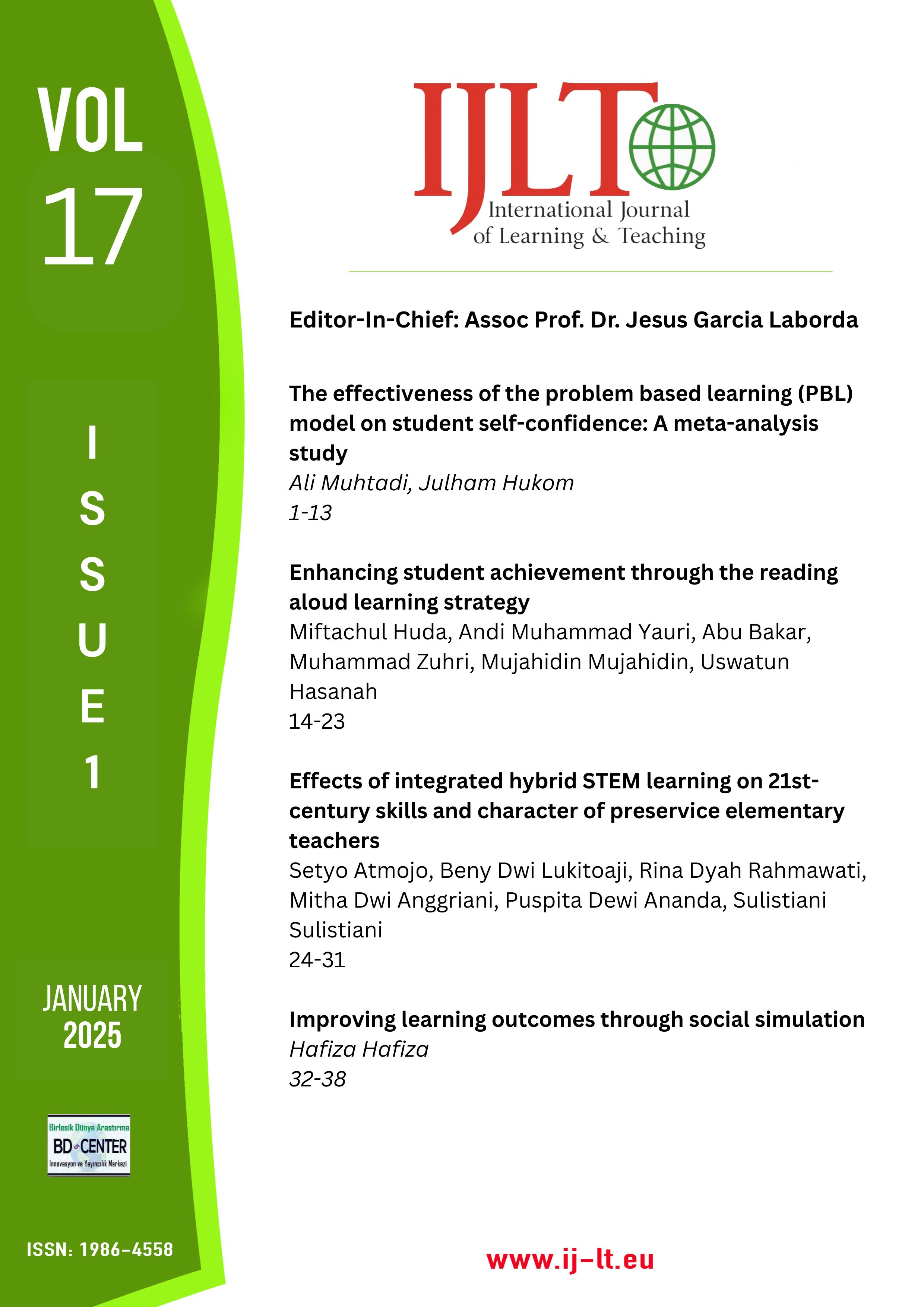Enhancing student achievement through the reading aloud learning strategy
Main Article Content
Abstract
Active learning strategies offer valuable contributions to instructional approaches by creating dynamic and engaging classroom environments. This study aimed to evaluate the effectiveness of the reading aloud strategy in enhancing students’ academic achievement. Employing a classroom action research design within a quantitative framework, the research focused on identifying and addressing instructional challenges through systematic intervention. The study followed the established cycle of planning, action, observation, and reflection, conducted over two consecutive stages in a secondary school setting. Findings revealed that the reading aloud strategy significantly improved students’ academic outcomes by fostering increased engagement, fluency, and enthusiasm. Students demonstrated greater activeness and responsiveness during lessons, contributing to a more vibrant and productive learning atmosphere. These results suggest that reading aloud not only supports cognitive development but also enhances classroom dynamics, making it a valuable component of active learning implementation. The study offers practical implications for educators seeking to apply active learning techniques to improve learner outcomes.
Keywords: Academic achievement; active learning; classroom engagement; reading aloud; teaching strategy
Downloads
Article Details

This work is licensed under a Creative Commons Attribution-NonCommercial-NoDerivatives 4.0 International License.
Authors who publish with this journal agree to the following terms:
- Authors retain copyright and grant the journal right of first publication with the work simultaneously licensed under a Creative Commons Attribution License that allows others to share the work with an acknowledgement of the work's authorship and initial publication in this journal.
- Authors are able to enter into separate, additional contractual arrangements for the non-exclusive distribution of the journal's published version of the work (e.g., post it to an institutional repository or publish it in a book), with an acknowledgement of its initial publication in this journal.
- Authors are permitted and encouraged to post their work online (e.g., in institutional repositories or on their website) prior to and during the submission process, as it can lead to productive exchanges, as well as earlier and greater citation of published work (SeeThe Effect of Open Access).
